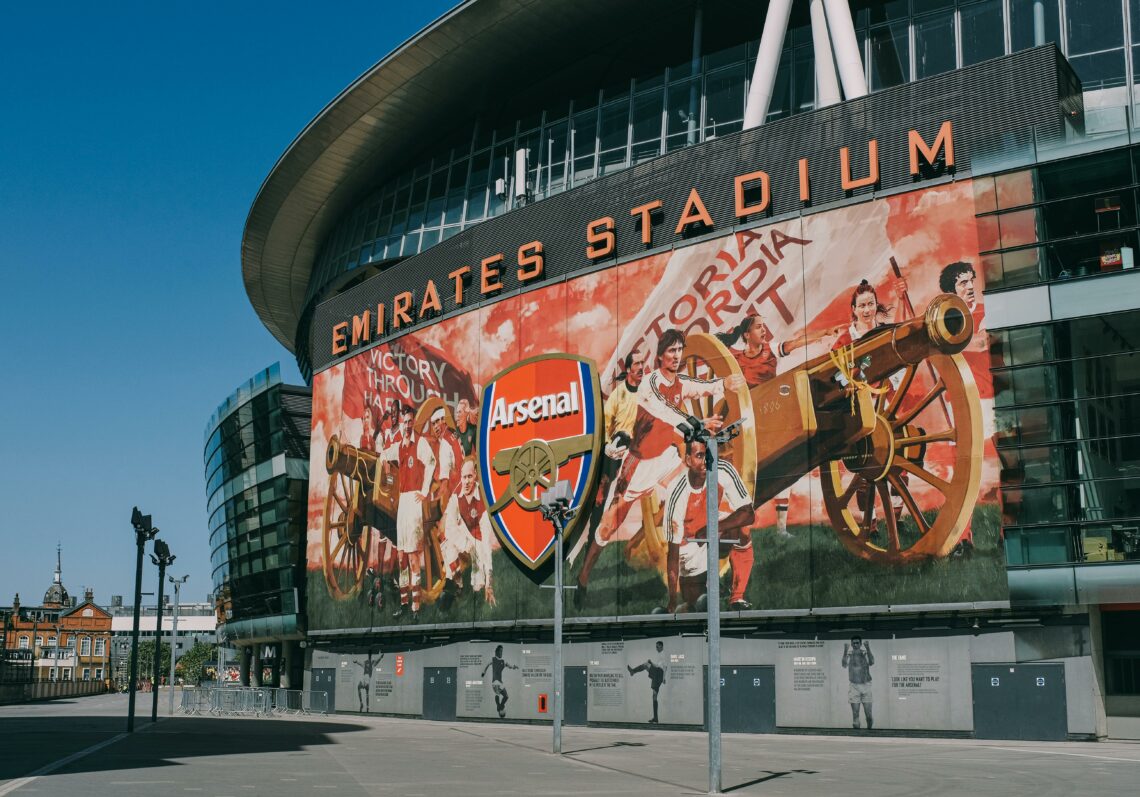Viktor Gyökeres is in, the fee is confirmed, and Arsenal fans are off to the races — again. But behind the usual debates over value and ambition lies a deeper shift in what it means to support a club. Football in 2025 isn’t just a game; it’s a marketplace. Streaming, betting, merch, even transfer rumours all costs something. And for many fans, that cost is starting to feel personal. In an era where loyalty gets monetised and every decision invites a take, one question keeps surfacing: are you still watching the game, or are you part of it?
The Gyökeres deal is done, the ink barely dry, and Arsenal fans have already split into camps. Some cheer, some scoff, most scroll. The reaction is automatic, but what it reveals isn’t. Transfer news doesn’t just stir emotion anymore, but instead triggers economic reflexes. Value, cost, risk, return. Supporting Arsenal in 2025 means thinking like an investor, not just a fan. And that shift is quietly redrawing the boundaries of modern football loyalty.
When Every Transfer Is a Market Signal
The Gyökeres deal came in at a confirmed fee, and predictably, the internet did what it does. Some said it was a steal. Others called it madness. But few questioned why we care so much in the first place. Why does the number matter more than the player sometimes?
Because modern fandom is part-financial analysis, part-identity ritual. We track fees like traders. We benchmark our club’s spending against rivals. And we expect value, even when the asset wears boots. That logic isn’t limited to football — it echoes across online behaviour, from fantasy leagues to comparison sites like https://kinghillscasino.net/uk/, where users sift through data, odds, and payout terms to decide what’s worth their stake.
That logic isn’t limited to football. It echoes across online behaviour, from fantasy leagues to comparison platforms like King Hills Casino, where users sort through odds, bonuses, and payout terms before committing. Sites like these reflect the same mindset: data-first, outcome-driven, and optimised for decision-making. It’s all part of the same cultural shift: investing, not just watching.
The days of “just trusting the manager” are gone. Every transfer is now a market signal, a referendum on ambition, and a psychological stake in something bigger than just football. This isn’t unique to Arsenal. But Arsenal fans feel it deeply. The club’s long-standing history of frugal spending has conditioned the fanbase to analyse value, weigh intent, and compare the cost of every move. We don’t just want a striker who scores. We want to know he was worth it.
The Monetised Fan Experience
And while clubs deal in transfers, fans have their own market to navigate. Subscriptions. Matchday tickets. Replica shirts. Special edition drops. Fan tokens. NFTs. It used to be enough to show up. Now, supporting a club is a full-time economic activity.
That includes betting, too. Not just at the edge of the community but right in its core. Whether it’s fantasy leagues, player props, or outright odds, fans are engaging with football financially, daily. According to a 2025 market report, the global sports betting industry is set to expand massively by 2030, driven by regulation and tech adoption across the UK, US, and Europe.
That means more platforms, more choices, and more ways for fans to turn passion into purchase. The lines blur. Is it a hobby? An investment? A ritual? Maybe all three.
Belonging Costs More Than It Used To
There was a time when you proved your loyalty by standing in the rain at Stoke. Now, it’s about how many kits you own, how many YouTube channels you follow, or how quickly you posted the news about Gyökeres. The badge hasn’t changed. The price of admission has.
And that price isn’t just financial. It’s mental. Keeping up with the modern football ecosystem is exhausting. There’s pressure to be in the know, to have a take, to monetise your engagement somehow. Even joy becomes a performance. If you’re not buying, betting, or building a brand around your fandom, are you even trying?
For younger fans, the bar is even higher. They’re digital natives, used to a world where everything is trackable, shareable, and ultimately, spendable. Football fits right in. It’s not a diversion anymore. It’s a lifestyle package with a steep buy-in.
The Arsenal of It All
Arsenal exists at the intersection of legacy and modernity. A club steeped in tradition but wired into the rhythms of online culture. When Gyökeres was confirmed, it wasn’t just a football decision. It was a moment of collective data interpretation. What does it mean? What does it signal? How do we feel?
And right there, hidden in plain sight, is the new cost of belonging. We don’t just want trophies. We want receipts. We want to know that the money we spend—on tickets, kits, bets, or emotional energy—is being matched by the club’s intent.
That makes us more engaged. But also more tired. More loyal. But more transactional. It’s not better or worse. It’s just modern football. And we’re all shareholders now.
The Bottom Line
Arsenal will keep signing players. Fans will keep reacting. The machine rolls on. But somewhere in between the fee confirmations and the fantasy league updates, it’s worth asking what kind of fan you want to be. The one who watches. Or the one who buys in.
Neither is wrong. But only one comes with a receipt.
